Investigation by Cătălin Prisacariu, Vitalie Călugăreanu, Sorin Ozon, Oleg Oganov
An important part of Moscow’s military machine, although far from Russian territory and geographically cut off from communication with the Russian Federation, is supplied with fuel by countries of the European Union.
As a result, an impressive force of war machines and huge amounts of ammunition are ready to take part in Vladimir Putin’s war against Ukraine at any time.
This is the so-called „Transnistrian Republic”, a strip of land that stretches along the Eastern border of The Republic Moldova and borders directly on Ukraine. This territory, which has been de facto controlled by Moscow loyalists since 1992, is home to Russian troops of the 14th Army and huge stockpiles of arms and ammunition (a photo gallery from Tiraspol accompanies the Romanian version of this story).
Without fuel, the Russian war machines in Transnistria would be scrap metal. But despite international sanctions, a sophisticated fuel supply chain keeps the separatist region supplied.
Scandalously, the network in charge of supplying the Russian military in Transnistria is made up of companies registered in European Union countries and has been operating at full capacity since the early days of the Russian invasion of Ukraine.
Today, the European Union and NATO refuse to comment on this dangerous situation, pointing to the responsibility of those EU and NATO member states that allow fuel supplies to Transnistria. They, in turn, hide behind Moldova, a country they believe is the only one capable of solving the problem.
Transnistria’s military threat cannot be ignored
Until the start of the Russian invasion of Ukraine on 24 February 2022, the Transnistrian territory was supplied exclusively with petrol and diesel, the fuel used by the war machines, from the Russian Federation, according to the National Energy Regulatory Agency of the Republic of Moldova.
After the fighting began on Ukrainian territory, Kyiv secured the border with Moldova along the Transnistrian region to prevent a possible attack on South-Western Ukraine by Russian forces.
Even more dangerous than a direct attack in South-Western Ukraine would have been a convergence of Transnistrian forces with Russian troops attempting to attack Odesa from the South. Such a troop movement would have been devastating not only for Ukraine but also for Moldova, which would have become part of the war operations.
But, asks Artem Filipenko, an expert at the National Institute for Strategic Studies in Kyiv, is there a risk of an attack by Transnistrian forces?
„As a military force, the entire contingent stationed in the Transnistrian region is significantly inferior to some parts of the Ukrainian armed forces, and it is unlikely to expect an attack from the region. Moreover, the administration of the Transnistrian region is controlled by a single economic entity – the Sheriff holding. As a result, neither the owner of the holding nor his protégés in the local administration are interested in escalating events. That is why, despite various challenges, the Transnistrian administration avoids any action in relation to Ukraine.
At the same time, Ukraine cannot ignore the presence of a Russian military contingent near its South-Western border. The threat of military activity from Transnistria was particularly acute at the beginning of the full scale invasion, when Russian troops attempted to capture Mykolaiv and there was a threat of an amphibious landing in the Odesa region. Today, there is more of a threat of <hybrid> actions from the region (intelligence activities, information and psychological operations, attempts to influence the mood of the population in the border areas etc.).
So far, there has been no excessive military activity. Most activities, such as exercises, are carried out in a planned manner. Another thing is that Moscow and its agents in Moldova are constantly trying to maintain tensions around Transnistria, citing possible provocations from Ukraine.
The purpose of such statements is not only to force Ukraine to react, but also to put pressure on Moldova. At present, Russia, with the help of pro-Russian forces, is trying to destabilise the situation in the country and topple Moldova’s pro-European leadership. The threat of Moldova’s alleged involvement in the Russian-Ukrainian war is one of the accusations that the pro-Russian parties are making against Moldovan President Maia Sandu and her team.”.
Moscow considers breakaway region part of Russian Federation
The strategic importance of Transnistria became clear on the very day that marked the one-year anniversary of Russia’s invasion of Ukraine. At the time, Moscow’s Foreign Ministry issued a warning to the West.
„Let there be no doubt: the armed forces of the Russian Federation will respond appropriately to any challenge by the Kyiv regime in Transnistria. We warn the United States, NATO member countries and their Ukrainian protégés against any adventurous initiative”, the Russian Foreign Ministry statement said.
According to the same document, the Russian army had observed a „significant build-up of Ukrainian military personnel and equipment near” the border with the Transnistrian region, „artillery deployment on firing positions” and an „unprecedented increase in Ukrainian drone flights over the territory” of the breakaway republic.
The Russian Foreign Ministry also said in the statement that „any actions threatening the security of Russian troops in Transnistria will be considered an attack on the Russian Federation under international law”.
More imported diesel after the invasion of Ukraine
Moldovan customs documents consulted by our team of journalists show that the isolation of Transnistria has not stopped or even reduced the flow of fuel imported by the „republic” with its capital in Tiraspol. On the contrary, the quantities of diesel, the fuel needed to power tanks and other motorised military equipment, have increased.
In the period from January to May 2023, 31,348 tonnes of diesel entered Transnistria. In the same period of the previous year, 2022, the amount of diesel imported by Tiraspol was only 25,654 tonnes. The calculation shows an increase in 2023 of more than 22% for the period January – May alone.
Basically, on a monthly average, almost 6,270 tonnes of diesel arrived in Transnistria in 2023. By comparison, the average monthly import of diesel in 2022 was less than 4,100 tonnes. Thus, the monthly increase in 2023 was more than 50%, indicating an urgent need for fuel for combat vehicles.
As for petrol, the volumes imported into Transnistria in 2023 decreased compared to 2022. In January-May 2023, 8.5 million litres arrived in the Transnistrian region, compared to 9.7 million litres in the same period in 2022. A decrease of almost 13%. How logical: the tanks are not filled with petrol.
After the outbreak of the Russian invasion of Ukraine, Russian fuel and oil imports into the European Union were banned. The Republic of Moldova, a candidate country for EU membership, has taken similar measures. The breakaway „republic” was thus deprived of its exclusive source of fuel.
In reality, however, the international sanctions did not work: Transnistria continued to receive fuel, especially diesel for tanks and other combat vehicles, through a European supply chain. A key player in this supply chain was the private Russian company Lukoil, which is tolerated on EU territory, especially in Romania and Bulgaria, where it has extensive and financially important operations.
Sheriff & Tiroiltreid, fuel importers
The Transnistrian end of the fuel chain is represented by two companies: Sheriff and Tiroiltreid. Only these two companies import diesel, petrol and LNG into the breakaway region of Moldova. According to the Chișinău Public Services Agency, both are controlled by the Transnistrian oligarch Victor Gușan. He is the beneficial owner. Both companies are „provisionally registered” in the Moldovan State Register of Enterprises and have been assigned tax codes.
The „provisional registration” of Transnistrian economic agents by the constitutional authorities of the Republic of Moldova is a Moldovan invention, legalised by Decision No. 815 of the Moldavian Government of 2 August 2005, which allows companies from the Transnistrian region to benefit from a bank account and to carry out import-export operations without any tax obligations to the Moldavian budget.
According to Article 7(6) of the Tax Code of the Republic of Moldova, „subdivisions located in administrative-territorial units whose budget is not part of the national public budget shall pay taxes and duties to the budget of the administrative-territorial unit where the enterprise has its main seat”. In other words, with this provision, Chișinău has sent Sheriff and Tiroiltreid (and other Transnistrian companies) to pay their taxes to the separatist „authorities” in Tiraspol.
EU, the main market for Tiraspol companies
Sheriff was founded in 1993, a year after the end of the Moldavian-Russian war on the Dniestr, which resulted in the de facto separation of Transnistria from the rest of the Republic of Moldova. The founders were Victor Gușan, Larisa Gușan and Ilya Kazmaly. The latter left the company in March 2012. According to the current situation, the sole shareholder of Sheriff is Victor Gușan, who is also the company’s president.
The Sheriff holding has dozens of active companies that control all segments of the local economy. Tiroiltreid is one of them. It appears to have been created to mimic competition in tenders for the procurement of fuel for the needs of Transnistrian public institutions. It is clear from publicly available tender documents that only two companies – Sheriff and Tiroiltreid – consistently participate in these tenders.
Sheriff’s annual revenues are larger than the budget of the breakaway region: hundreds of millions of dollars.
Provisionally registered with the constitutional authorities in Chișinău, Gușan’s companies are taking full advantage of the free trade agreement that Moldova has signed with the EU. According to official statistics, the EU market absorbed 67% of the Transnistrian region’s exports in 2023, with strong growth dynamics.
Gușan has business partners in most EU member states, but also in the East. It is unclear to what extent Russia’s war on Ukraine has affected his relations with the political elite in Kyiv (he is also a Ukrainian citizen). Gușan did not answer the series of questions sent to him by our team of journalists.
What is certain is that between 2014 and 2017, against the backdrop of the anti-terrorist operation in Eastern Ukraine, Sheriff did business with Roshen, a confectionery company owned by former Ukrainian president Petro Poroshenko. According to RISE Moldova, the trade exchange between the two companies amounted to around $3 million. The goods were shipped directly to Transnistria, avoiding customs control by the authorities in Chișinău.
Sheriff was twice targeted by prosecutors in the Republic of Moldova on suspicion of illegal trade and smuggling on a particularly large scale. The criminal cases were initiated in 2004 and 2005 and were subsequently joined. In 2008, the prosecution was suspended due to „the impossibility of identifying the perpetrators”.
Tiroiltreid was registered until 2014 at the same address in Tiraspol where Sheriff was based: 81/11 Shevchenko Street. After acquiring 100% of the shares in Metan-Auto, Tiroiltreid moved to 103 Shevchenko Street. Metan-Auto is another Transnistrian company that has been granted a licence by the National Energy Regulatory Agency (NERA) in Chișinău to import petroleum products until 8 November 2022.
Tiroiltreid, which has a licence from NERA to import petroleum products into Moldova, was founded and is run by Ilia Vasiliev, a businessman with a mandate and immunity as a „deputy” in several legislatures in the so-called „parliament” in Tiraspol.
„Sheriff” Gușan, like Putin, was a former KGB officer
Victor Gușan is the beneficial owner of Sheriff, Serif and Tiroiltreid SRL – as they appear in the database of the Chișinău Public Services Agency (ASP). The data on the beneficial owners of the three companies were last updated by the ASP on 02/02/2023. In all three cases, Victor Gușan appears as the beneficial owner.
Together with Ilya Kazmaly – another oligarch linked to the schemes created by the separatist regime in Tiraspol (with ramifications also in the Gagauz Autonomous Republic of Moldova) – 60-year-old Gușan is co-owner of dozens of companies established in Moldova, Ukraine and EU Member States (most of them in Germany), but also in offshore jurisdictions. When registering these companies, he used identity documents issued by Moldova, Ukraine and the Russian Federation, holding citizenship of all three countries.
In the Transnistrian region of Moldova, which is controlled by the pro-Russian separatist regime, Victor Gușan controls a large group of companies through which he keeps the entire economy of the separatist region under his influence – from food, fuel, medicine and sports trading to fixed and mobile telephony, internet, banking and media.
According to data from the Register of Legal Entities of Ukraine, at the beginning of 2016 Gușan was listed as the owner and beneficial owner of the Ukrainian mobile operator Intertelecom. In 2016, against the backdrop of the war with pro-Russian separatists in Eastern Ukraine, Intertelecom became the subject of an investigation by the Security Service of Ukraine (SBU). The company was suspected of providing Russian intelligence services with the ability to eavesdrop on mobile phone subscribers in Ukraine.
During the USSR, Gușan was one of the heads of the Russian secret service in Moldova, and later, after the creation of the separatist enclave on the left bank of the Dniester, he was part of the so-called „Transnistrian secret service”. His name in this capacity can be found in ECHR case no. 48787/99 of the Tiraspol political prisoners „Ilașcu and others v. Moldova and Russia”. The file shows that Gușan was one of the KGB collaborators who participated in the arrest, search and interrogation of political prisoners by the Transnistrian and Russian secret services 31 years ago.
All Gușan’s politicians, the boss the EU won’t touch
The main exponents of the separatist regime in Tiraspol were and are products of the Sheriff holding, including the so-called „parliamentary majority”. Through them, Gușan secures absolute administrative control over the Transnistrian region.
The former „president” of the self-proclaimed Transnistrian republic, Yevgeni Shevchuk, was Sheriff’s deputy director. The current „president” of the breakaway enclave, Vadim Krasnoselski, was from 2012-2015 adviser to the director of Interdnestrkom – the mobile phone operator on the left bank of the Dniester, also founded by Gușan and Kazmaly.
Thus, the entire „administrative apparatus” of the separatist „republic” works in the interests of the Gușan empire.
In 2003, following abuses by the illegal administration in Tiraspol against Romanian-language schools on the left bank of the Dniester, the EU introduced visa restrictions against several members of the separatist regime. Every year the EU extends the validity of these restrictions.
However, Victor Gușan is not on the list of those sanctioned by the EU. In Chișinău, only NGOs (not the authorities) demand his inclusion in the list of international sanctions.
In February, the current pro-European government in Chișinău adopted a bill on combating separatism. It provides for criminal penalties for separatism and incitement to separatism. Moldova’s acting Prosecutor General, Ion Munteanu, says that there are currently no criminal cases under the new provision in the Criminal Code and that it is „difficult to enforce” it. The constitutional authorities have not opened any criminal cases for separatism or usurpation of power on part of the national territory, either in the name of Gușan or in the name of respected Transnistrian leader Vadim Krasnoselski.
However, the vice-prime-minister for Integration, Oleg Serebrian, claims that including Gușan on the international sanctions list „is more and more discussed these days”.
Lukoil, the separatists’ main pump
The main partner of Sheriff and Tiroiltreid (both controlled by Victor Gușan), as of March 2022, is the Russian group Lukoil.
According to Moldavian Customs documents consulted by our team of journalists, 98% of diesel imported into Transnistria in 2023 so far came from the Lukoil refinery in Romania. Also in 2023, 100% of the petrol imported so far into the breakaway republic came from the Lukoil refinery in Romania.
In 2022, 96% of the gasoline in the breakaway enclave of Moldova came from Romania.
Also in 2022, Lukoil (through companies in Romania, Bulgaria and the Netherlands) supplied only 30% of the diesel for Transnistria. The remaining 70% came from smaller companies, all controlled by Russian or Moldavian citizens.
All these data refer to companies that exported fuel to Transnistria. In some cases, however, the countries of origin of the fuel are different from those of the exporting companies. For example, in 2022, Transnistria received diesel exported by companies in Romania, but originating in six countries (including Russia) and the European Union.
All data are detailed in the following paragraphs.
Small Bulgarian tankers
The documents cited above show that 49,049 tonnes of diesel entered Transnistria in 2022. Almost 70% of this amount, i.e. 33,804 tonnes, was imported by the Sheriff company.
Six companies (two from Bulgaria, three from Romania and one from the USA) had diesel supply contracts with Sheriff.
The two Bulgarian companies supplied around 2,800 tonnes of diesel, or around 8% of Sheriff’s total imports in 2022.
There are two small companies. One, Agro 03, specialises in selling general merchandise as well as fuel. The other, GTA Petroleum, is a trader of petroleum products active in the markets of Bulgaria, Romania, Greece, Kosovo and Serbia.
The origin of the fuel supplied by the two Bulgarian companies is Romania, Bulgaria and other EU countries.
Euronova Energies, the Russian pipeline
Most of the diesel imported by Sheriff in 2022, 90% of the volume, came from three export companies registered in Romania. Sheriff imported 30,825 tonnes of diesel from these three companies. The country of origin for almost 70% of this diesel (20,990 tonnes) was Russia.
The importer of diesel from Russia was a company registered in Switzerland, but considered by the Moldavian Customs authorities to be a Romanian exporter. The company is called Euronova Energies SA, based in Geneva. It was founded in 2013.
Even before 2022, this company exported Russian fuel to Transnistria. According to the Chișinău-based Journalistic Investigation Centre, the diesel tankers departed from the Russian port of Novorossiysk, crossed the Black Sea to the Romanian port of Constanța, where it was stored at the Oil Terminal Company, then taken over by a Romanian company and transported to the territory of Moldova, from where it reached Transnistria.
Euronova Energies SA is engaged in the transport, storage and marketing of oil and refined products on the markets of South-Eastern Europe. It has storage capacity on the Black Sea (where it has a contract with the State Oil Terminal Company in Constanța) and on the Adriatic, and also transports fuels on the Danube. It also has offices in Geneva, Dubai and Novi Sad.
It has won several tenders for oil quotas in the Urals through the Russian state company Zarubezhneft.
Gazprom’s Matryoshka and spying on resources in Romania
Euronova Energies SA also has indirect links with the Gazprom giant. According to the activity reports of the Serbian company NIS, which is owned by Gazprom, Euronova Energies is the second supplier of the Serbian company after the owner Gazprom.
Euronova Energies is currently managed by the Serbian Stephane Jovanovic (Chairman) and the Franco-Swiss nationals Gilles Chautard and Raphaë Gossner.
Between 2012 and 2017, Stephane Jovanovic also worked through Euronova Energies SRL, a company he founded in Bucharest but which has since closed.
The ICIJ Offshore Leaks database shows that Stephane Jovanovic is also a partner with Duško Perović in Vendome Energy International SA (registered in the British Virgin Islands).
Duško Perović is the head of the representative office of Republika Srpska (part of the territory of Bosnia and Herzegovina) in Moscow and a great russophile.
A few years ago, Petrović was involved in a scandal when he threatened journalists from the Bosnian-Herzegovinian publication Capital after they published an investigation into Petrović and the company Comsar Energy, which was to build a thermal power plant.
Comsar Energy is a Cypriot company owned by Russian oligarch Rashid Sardarov, and Perović was also an employee of Sardarov’s companies. Comsar Energy holds a 44-year concession from the government of Republika Srpska to build and operate the Ugljevik 3 thermal power plant and adjacent coal mine.
Perović was also responsible for bringing the Sputnik anti-COVID vaccine and several Russian investments to Republika Srpska.
Duško Perović is also a shareholder in the British Virgin Islands offshore companies Brokly Alliance Inc and Elnasort Financial Inc (a company which was itself a shareholder in Russia’s Sardarovs Comsar).
His partner in the second company is the Serbian Aleksandar Andrejević. And from this figure emerges a tangle of offshore companies in which several Russians and former Serbian politicians are involved.
Aleksandar Andrejević’s name is linked to several scandals as the representative of the Swiss company Mineco AG. He was also charged in Serbia with fraud in the privatisation of an alcohol factory.
While hiding from the Serbian authorities in 2012, Andrejević met in Bucharest with Iacob Chișărău, then director of the Romanian company Moldomin, and Dan Adrian Rus, representative of Mineco’s Romanian branch.
The purpose of the meeting was to find a way to bribe the judge handling the Moldomin privatisation case to rule in favour of the Swiss company. At stake was more than $1 billion worth of copper deposits controlled by the former Romanian state company.
Mineco had won the rights to exploit Moldomin’s copper reserves, but the Romanian state cancelled the privatisation on suspicion that the process had not been carried out properly. So the case went to court, and the Swiss wanted to make sure they weren’t wasting their time.
The bribe-taker, Iacob Chișărău, was arrested, followed by the judge and Dan Adrian Rus. They were all sentenced in 2013.
Andrejević managed to leave Romania in time and escape the law by hiding in London.
At the time, a Russian geologist was detained by the Romanian authorities at Bucharest’s Henri Coandă International Airport. Secret geological maps were found on him, and Romanian prosecutors and Internal Secret Service said they had thwarted an act of espionage and a threat to Romania’s national security. The maps allegedly contained classified information on copper and rare metal reserves in the Moldova Nouă area.
The name of the spy arrested at the time was Orlov Mikhail, a geologist who was part of a team of Russian mining experts brought to Romania by Dragan Aksentijević, the head of Mineco’s hunted Aleksandar Andrejević.
According to the OCCRP, the team of experts was led by Ilyas Abdrakhmanov, then a deputy of the Republic of Bashkiria, a territory of the Russian Federation, and a member of Vladimir Putin’s United Russia political party.
After these episodes, Mineco withdrew from Romania and liquidated all its companies, leaving Moldomin bankrupt and an environmental disaster.
Peanuts: a Moldovan and a Dobrogea resident
The other two Romanian companies that exported diesel to Transnistria in 2002 were Bitum Logistics Co SRL and Marsala Koncept SRL. In total, the two sent about 3,600 tonnes of diesel to the separatist „republic”.
Bitum Logistics Co sold only 533 tonnes of diesel to Sheriff Tiraspol. The company was founded in 2020. In just three years, its turnover has increased 88-fold and its profits five-fold (to almost four hundred thousand euros).
However, at the end of March 2023, creditors forced the company into bankruptcy.
The current owner and administrator of Bitum Logistics Co SRL is Grigore Cechina, a Romanian citizen born 58 years ago in the Republic of Moldova.
The history of Bitum Logistics Co SRL is quite dense considering its short life. The company was founded in September 2020 by Grigore Cechina, Walczak Tomasz Stanislaw and Konstanty Dariusz Wojciech from Poland, Matei Costin Ionescu, Ana Cristina Iordan, Dan Vasile Cristurean, Daniel Marian Pușcaș from Romania and Iurie Ivanov from Moldova.
The Poles are also involved in the energy and fuel business at home in Poland, and Konstanty was also the representative of the Russian company DelkOil.
In March 2021, the Romanians withdrew from the company and the remaining partners were Grigore Cechina, the Poles Walczak Tomasz Stanislaw and Konstanty Dariusz Wojciech, and the Moldavian Iurie Ivanov.
Cechina became the sole shareholder in June 2021 and filed for bankruptcy in March 2023.
Marsala Koncept, a company established in 2014, exported more than 3,000 tonnes of diesel to Sheriff Tiraspol.
The sole shareholder and manager of the fuel trading company in Constanța is Elbis Osman.
In a telephone conversation with a member of our team of journalists, Elbis Osman admitted that he had worked with Sheriff: „We continue to export to Moldova, but we no longer do business with Sheriff because it is not a serious company. At the moment there is a big fuel shortage in Moldova because of the current situation.”.
Osman said that Marsala Koncept buys fuel from „several suppliers on the Romanian market. We don’t have a specific supplier. We buy from whoever offers a better price.”.
Asked if he was aware that some of the diesel exported by his company might end up with Russian troops in Transnistria, Osman denied it: „I sell legally. Whoever pays better is the customer. I don’t investigate who sells to whom. I buy from Oil Terminal and sell on to domestic or foreign customers.”.
Miami company, diesel from Belarus
The American company that exported diesel to Sheriff in 2022 is just a front for a Moldavian citizen, Yuri Blincov. He founded the company Prime H.M. Exim Inc. in Miami in 2013.
According to documents consulted by our team of journalists, the country of origin of the diesel invoiced by Prime H.M. Exim Inc. is Belarus. Amount exported: only 184 tonnes.
According to the investigative outlet RISE Moldavia, Blincov also appears in a dispute against the so-called Customs Committee in the breakaway region, which is listed as a supplier of diesel to the Sheriff company.
The same source also cites US Treasury documents (disclosed through the international FinCENFiles project), according to which in 2017 the New York-based Bank of China Limited reported $2 million transferred by Sheriff Tiraspol from accounts in a Russian bank to several companies in Poland, Lithuania, Ukraine and the US. In the US, the money was transferred to Prime H.M. Exim Inc.
Petrotel Lukoil Romania, Tiraspol’s favourite refinery
In 2022, Tiroiltreid also imported diesel to Transnistria. Quantity: 15,245 tonnes.
Most of the diesel imported by Tiroiltreid, 12,258 tonnes, came from the Petrotel Lukoil refinery in Romania, but the seller of the diesel was the Swiss company Litasco, the official trader of the Lukoil group.
Another almost 3,000 tonnes of diesel was purchased by Tiroiltreid from Lukoil Bulgaria and Lukoil Benelux.
In 2023, from January to May, 31,348 tonnes of diesel arrived in Transnistria. Most of this amount, 30,737 tonnes of diesel, or 98%, was delivered by Litasco Switzerland, the Lukoil Group trader, and the origin of the fuel was the Petrotel Lukoil refinery in Romania.
In 2022, 30.3 million litres of petrol arrived in Transnistria. Sheriff imported just over a million litres of petrol, all from Belarus. The remaining 29.3 million litres were imported by Tiroiltreid from the Petrotel Lukoil refinery in Romania.
In 2023, from January to May, only Tiroiltreid imported petrol into Transnistria: 8.5 million litres. The seller of the fuel was Litasco Switzerland, the Lukoil Group’s trader, and the source of the petrol was the Petrotel Lukoil refinery in Romania.
Tanks refuel at PECO Gușan
Every recipient of fuel in Transnistria – whether private individual, company or institution – is a customer of one of the two companies controlled by Victor Gușan, Sheriff and Tiroiltreid, the only importers of diesel, petrol and LNG.
When it comes to public institutions of the Transnistrian „republic”, Sheriff and Tiroiltreid are the only companies that submit bids to sham public tenders. The same is apparently true of the armed forces on Transnistrian territory.
Even the Moldavian Intelligence and Security Service, in a note published by anticoruptie.md, points out that „a good part of the diesel and petrol imported into Transnistria (…) is used by the GOTR (Russian Troops Task Force) stationed on the left bank of the Dniester to defend the Cobasna arms depots. The GOTR also frequently conducts military exercises aimed at demonstrating the capabilities of the separatist forces and intimidating the constitutional authorities of Moldova.”.
Two questions for the EU, NATO and some governments
Two questions are essential in the context of the fueling of the Russian war machine in Transnistria:
- How was it possible that after the invasion of Ukraine, more than 20,000 tonnes of diesel from Russia reached the Russian military forces in Transnistria via EU companies (Euronova Energies case), despite the sanctions imposed by the EU bloc on Russian oil?
- How was it possible that more than 55,000 tonnes of diesel and 38 million litres of petrol produced in the EU (mainly in Romania, but also in Bulgaria and other EU countries) ended up in Transnistria and thus in the hands of the Moscow-controlled military forces, despite the sanctions imposed by the EU bloc on individuals and entities supporting the Russian invasion?
EU and NATO hiding behind governments hiding behind Moldova
Our team of journalists sent these questions to all the governments of the EU countries where the companies involved in the Transnistrian network are registered, as well as to the European Union and NATO.
All the answers we received were PR dodges.
The European Commission replied to question 1 that „on the basis of the limited information provided on the assets and entities involved, the EU is not in a position to comment on or assess whether EU sanctions have been violated or circumvented”.
NATO’s response was even more curt: „We will refer your questions to the authorities in the countries concerned who are best placed to answer them”.
The Bucharest government’s response shifted all responsibility to the Chișinău government, even though Moldova is not a member of the EU:
„The import regime (licensing, tariffs, product nomenclature etc.) in the Republic of Moldova is established by regulations adopted by the Moldovan authorities. These regulations cover the entire territory and all economic operators of the Republic of Moldova, including the Transnistrian region.
The Romanian authorities do not have and do not collect data on the categories of products, their origin, specifications, value, etc. imported into Moldova”.
The Sofia government’s response seems to have been copied from its counterparts in Bucharest, although the words used are different:
„We consider Transnistria as an integral part of the Republic of Moldova and within its internationally recognized borders. The authorities in the Republic of Moldova are the ones exercising control over the entire territory, including the border crossing points.
We have no notification from the authorities in the Republic of Moldova related to the assumptions raised in your questions.”.
Chișinău bans kerosene for Transnistria, which has no planes
The response of the government in Chișinău also avoided the main issue:
„Imports of petroleum and diesel fuel destined for the Transnistrian region of the Republic of Moldova are allowed only for civilian use, with restrictions on sensitive categories of petroleum products (e.g. aviation gasoline, jet fuel or equivalent).
Following the outbreak of the Russian Federation’s brutal war against Ukraine, the activity of the border crossings on the central (Transnistrian) segment of the Moldovan-Ukrainian state border was suspended. Implicitly, the Moldavian customs and border authorities are fully monitoring all import transactions carried out by companies in the eastern districts of the country exclusively at posts controlled by the constitutional authorities.
According to the authorities’ analysis, there were no significant fluctuations in oil and diesel imports to the Transnistrian region of the Republic of Moldova in 2022 compared to the same period in 2021 (…).
All categories of goods prohibited on the territory of the country, included in the list of international sanctions, including from the Russian Federation, as well as those with potential military use, destined for the Transnistrian region, are not allowed to be imported into the Republic of Moldova.
In accordance with the provisions of Law No. 1163/2000 and Government Decision No. 606/2002, the import of dual-use goods into the territory of the Republic of Moldova is possible only upon the issuance of permits by the Interdepartmental Commission for the Control of Export, Re-export, Import and Transit of Strategic Goods.
In the case of import to the Transnistrian region of our country, increased monitoring and verification is applied, and in case of detection of potential use of the goods for military or paramilitary purposes, the authorisation of the transaction is refused, regardless of the category of goods (electronic equipment, software, chemicals or other categories).
In the course of the examination of the documents submitted by the applicants, it is verified whether the category of the imported goods is not included in the international sanctions lists or in the prohibited nomenclatures agreed bilaterally/multilaterally with the states or international partner organisations with the Republic of Moldova”.

The production of this investigation is supported by a grant from the IJ4EU fund. The International Press Institute IPI, the European Journalism Centre EJC and any other partners in the IJ4EU fund are not responsible for the content published and any use made out of it.
_______________________________
Defapt.ro este un proiect jurnalistic fără apartenență politică, ideologică sau comercială.
Defapt.ro nu se finanțează cu fonduri ale statului român și nici cu sume provenite de la partidele politice.
Defapt.ro poate fi sprijinit prin donații pentru susținerea jurnalismului independent:

Donează suma dorită pentru susținerea proiectului Defapt.ro
CONT BANCAR: IBAN RO48BRDE445SV97760644450
Deschis la BRD
Asociația „Doar fapte, CIF 45500057.

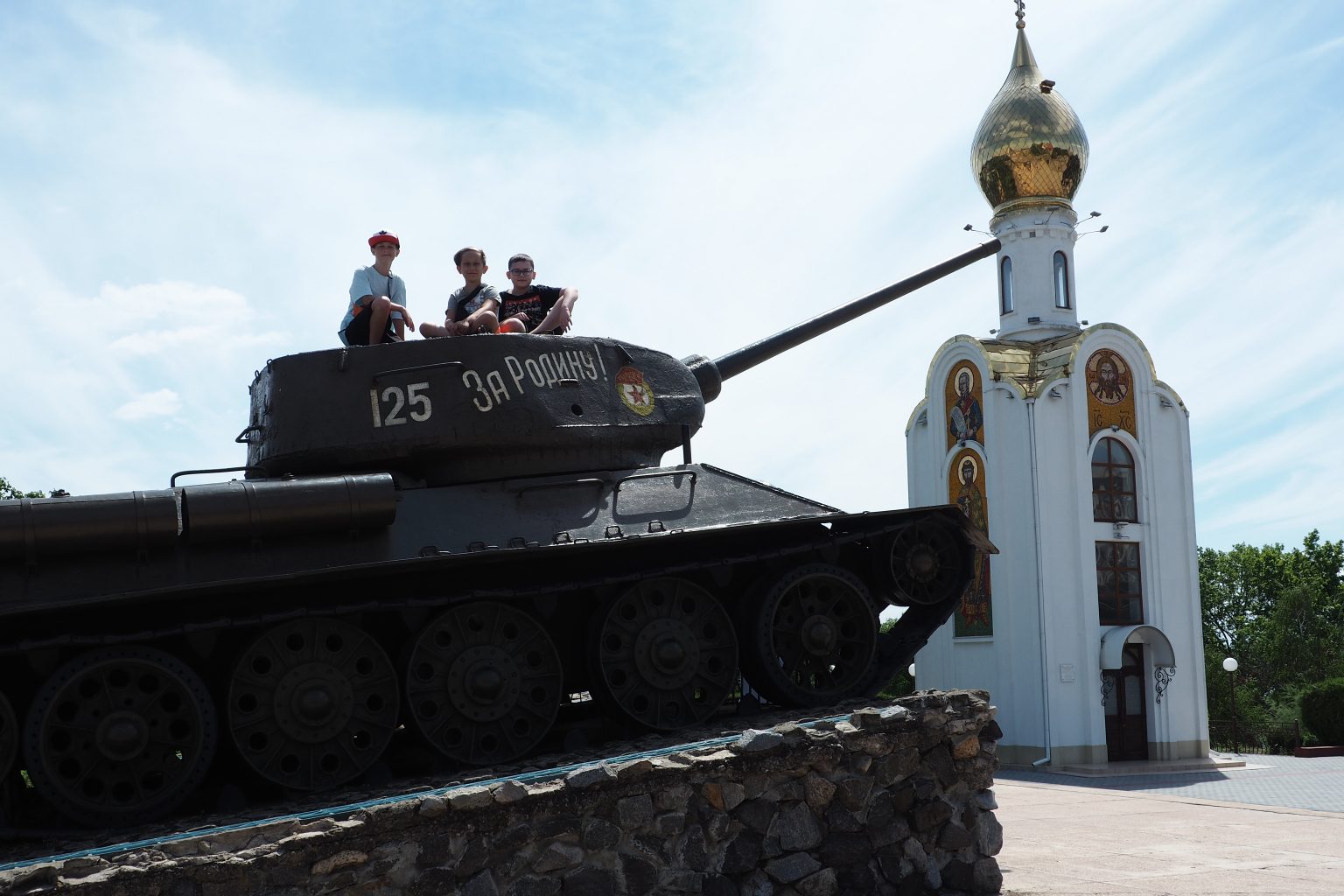
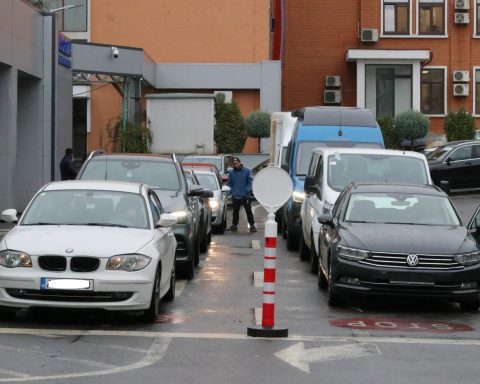
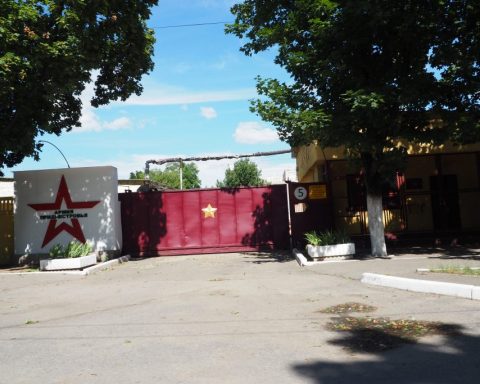
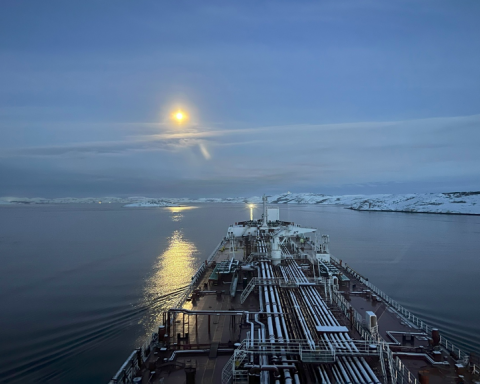
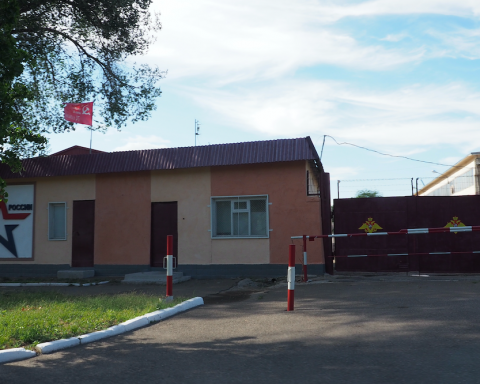
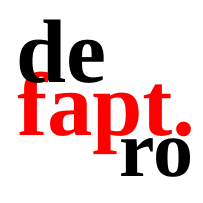 Ultima oră
Ultima oră
[…] Anchetă realizată de Cătălin Prisacariu, Vitalie Călugăreanu, Sorin Ozon și Oleg Oganov (the English version of this story can be found here) […]
Unul din cele mai bune articole de jurnalism de investigatie de pe acest site. Felicitari redactiei! Mult mai bine decat alte articole care sunt simple preluari din alte publicatii.